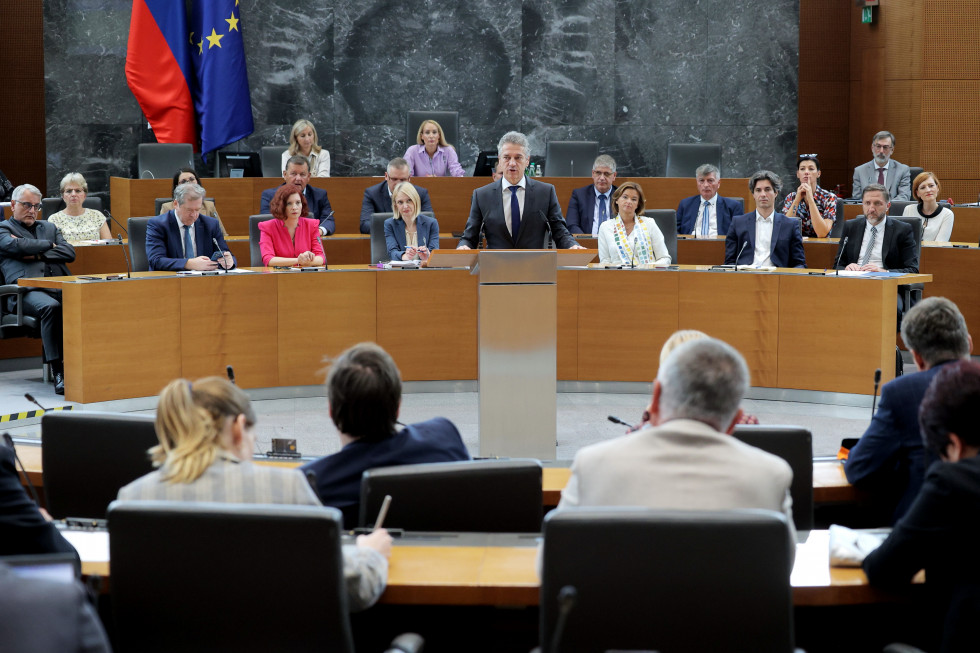Prime Minister Robert Golob: “We will come out of the post-flood reconstruction as a stronger society”

Prime Minister of the Republic of Slovenia, Robert Golob, presented deputies with the budget documents for the next two years | Author Žan Kolman/KPV
As he pointed out in his opening address, the changes to the budgets for the coming years are marked by the catastrophic floods in August: “If we thought a while ago that the damage would be estimated at around EUR 7 billion according to the World Bank's methodology, unfortunately it has now turned out differently,” said Prime Minister Golob, adding that the damage estimate of EUR 9.9 billion includes reconstruction.
According to the Prime Minister, the rehabilitation of landslides and watercourses will take a lot of time and money. He stressed that the environment must be more resilient after the restoration than it was before: “It is precisely the improvement of resilience that significantly raises this estimate.” It is a long-term process that will take five years or more.
The economy, population and infrastructure suffered around 5 billion in damages, of which the economy suffered just under 1 billion, the population around 800 million, and the rest fell to infrastructure, both municipal and national.
The difference between this and the previous estimates is that now more resilient replacement facilities and compensation for businesses and infrastructure are foreseen. “Measures targeting the economy, the population and also infrastructure will be implemented primarily within the budget years 2023-2025,” the Prime Minister stressed.
“We have long-term measures in areas where we will unfortunately need several years, and we have measures we want to implement faster,” the Prime Minister said, explaining that EUR 600 million has already been earmarked in the 2023 budget, EUR 1.1 billion in 2024 and more than EUR 500 million is planned for 2025. The total amount is more than EUR 2 billion in direct funding for disaster relief and reconstruction of Slovenia in the aftermath of these floods.
The 2024 budget foresees EUR 14 billion in revenue and EUR 16.2 billion in expenditure. The overall deficit will be 3.8%, which is less than this year's deficit of 4.5%: “The deficit is declining, but there is still a deficit of almost 1%, which is the result of the flood recovery,” the Prime Minister said, stressing that, had there been no floods, the budget would have been within the fiscal rules.
Prime Minister Robert Golob pointed out that the total volume of investments will be almost the same or even higher than this year and higher than the current budget for 2024: “All essential investments remain on track. None of the ongoing investments is being stopped.”
In addition, investment in science, research and innovation is also increasing, “because we believe that investing in added value and knowledge will help us in the future to ensure that we have the resources to deal with the consequences of the floods,” said Robert Golob.
Notwithstanding the emergency situation, the budget will allocate resources to strengthen the economy and infrastructure. “This is precisely why we will be able to come out of the post-flood reconstruction as a stronger society,” the Prime Minister stressed, adding that we will ensure both reconstruction and continued investment.

